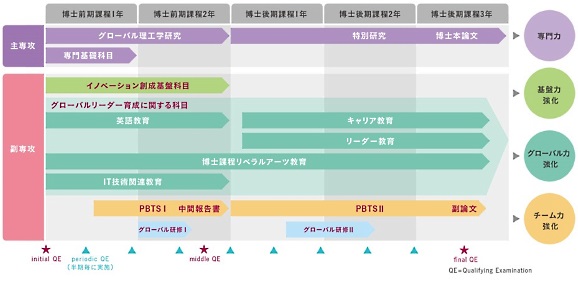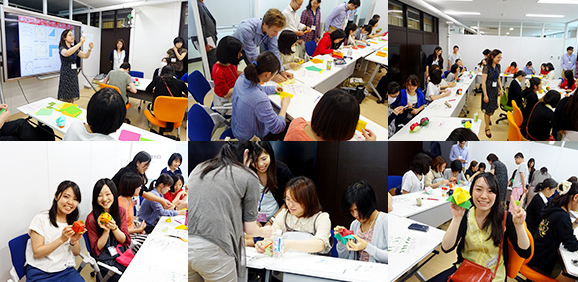4月10日よりEssential Computer Science for Global LeadersⅠを開講します。この科目は、グローバル理工学副専攻の履修科目(必修)になっていますが、博士前期・後期課程に所属し、関心のある学生であれば、どなたでも履修することができます。なお、講義は英語で行われます。
主題と目標
 Computer science and engineering is an emerging discipline in the current epoch of human history. Along with electronics, it drives the information revolution following industrial and agricultural revolutions. In the recent years, it has become an indispensable discipline, playing active roles in almost all social sectors: medical, engineering, business, laws, social sciences, sciences and humanities. Future progress and the ultimate shape of this planet will largely depend on how the next generation global leaders are going to be equipped with essential knowledge on computer and related sciences. Although computer science graduates have some knowledge, future leaders from other disciplines need to be prepared for facing complex challenges ahead. Attention will therefore be given to simplify various key concepts using discussions, examples and practices. Besides essential foundations, the recent trends will also be investigated in order to keep track of the fast growing discipline ever.
Computer science and engineering is an emerging discipline in the current epoch of human history. Along with electronics, it drives the information revolution following industrial and agricultural revolutions. In the recent years, it has become an indispensable discipline, playing active roles in almost all social sectors: medical, engineering, business, laws, social sciences, sciences and humanities. Future progress and the ultimate shape of this planet will largely depend on how the next generation global leaders are going to be equipped with essential knowledge on computer and related sciences. Although computer science graduates have some knowledge, future leaders from other disciplines need to be prepared for facing complex challenges ahead. Attention will therefore be given to simplify various key concepts using discussions, examples and practices. Besides essential foundations, the recent trends will also be investigated in order to keep track of the fast growing discipline ever.
学生へのメッセージ
Although e-Computer Science-1 is designed as an interdisciplinary course, students from both fundamental and applied sciences will be benefited. However, regular attendance is important to grasp key concepts of this course. All references are not mandatory. Follow lectures in relaxed mode.
N.B. Contents of the topics may be altered subject to necessity
講義概要
| 科目名 |
|---|
| Essential Computer Science for Global LeadersⅠ [19S1004] |
| 単位数 |
| 2.0単位 |
| 担当教員 |
| BASHAR, Md Khayrul (お茶の水女子大学プロジェクト教育研究院特任准教授) |
| 対象 |
| 博士前期・後期課程 |
| 場所 |
| 人間文化研究科棟408室 |
| 日時 |
| 水曜3~4限(10:40-12:10) 4月10日、17日、24日 5月08日、15日、22日、29日 6月05日、12日、19日、26日 7月03日、10日、17日、24日 |
| 授業計画 |
Power point presentation, onboard discussion, computer practices
|
| 時間外学習 |
| Having general idea before each lecture may be useful. |
| 教科書・参考文献 |
|
履修登録
履修登録期間: 4月9日(火)~ 4月22日(月)
上記登録期間内に登録ができなかった場合は、学生センター棟1階学務課にご相談ください。
お問合せ
お茶の水女子大学 リーディング大学院推進センター
Tel: 03-5978-5775
E-mail:





